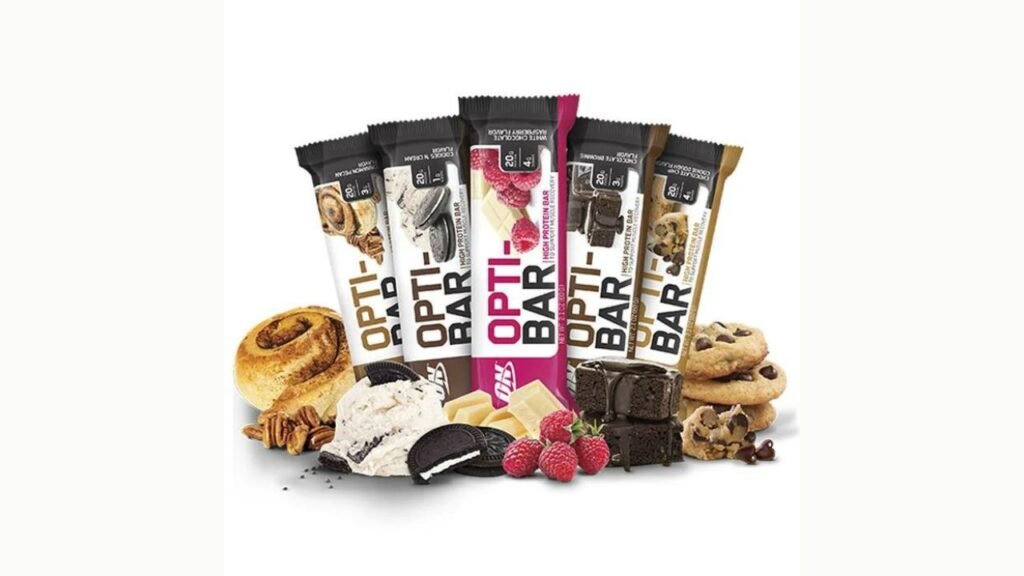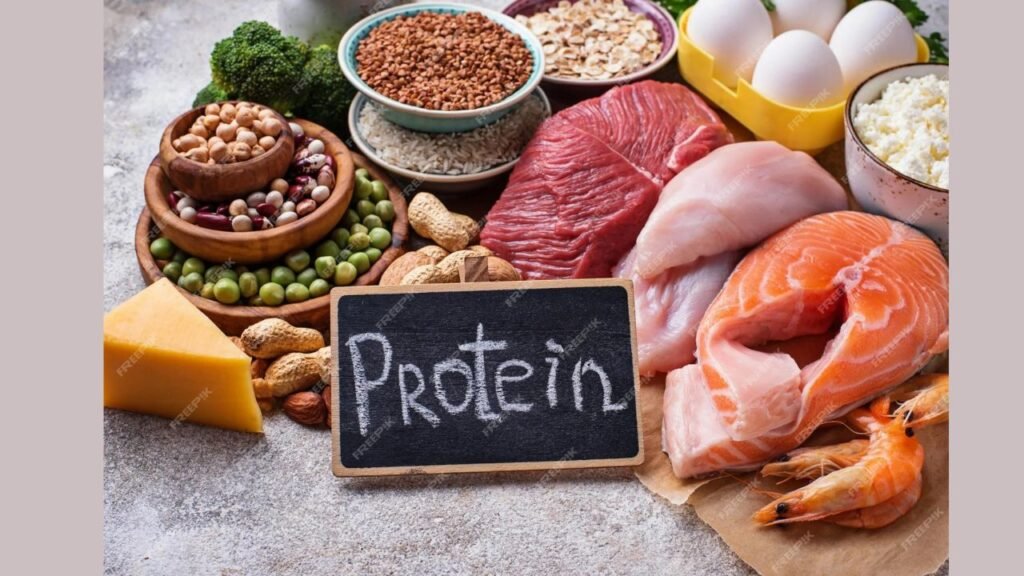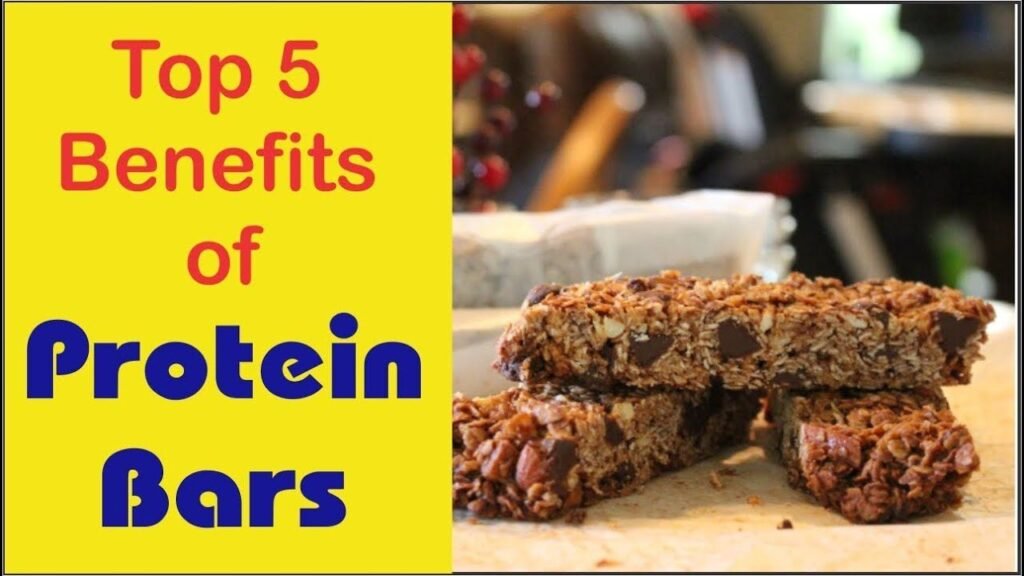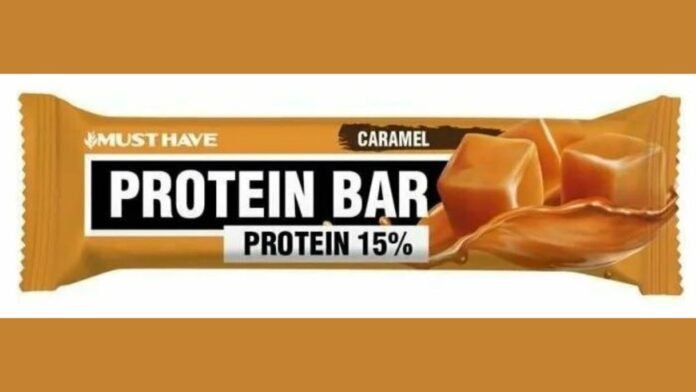The Perfect Timings of Having a Protein Bar for optimal fitness results. Whether as a pre-workout boost, post-workout recovery aid, or satisfying snack between meals, learn how timing impacts performance and nutrition goals. Maximize benefits by aligning intake with personal objectives and dietary needs.
Finding the Importance of Timing
Timing plays a crucial role in determining success. From catching a train to making important decisions, finding the right moment is key. Similarly, in fitness and nutrition, timing holds significant importance.
Whether it’s the timing of meals, supplements, or workouts, understanding when to act can greatly impact results. By recognizing the importance of timing, individuals can optimize their routines to maximize efficiency and effectiveness.
Whether aiming for muscle gain, weight loss, or overall health improvement, syncing actions with the right timing can lead to better outcomes and enhanced well-being.
Pre-Workout Timing
Consuming a protein bar before your workout can provide your body with the necessary fuel to power through your training session. Ideally, it would help if you aimed to have a protein bar about 30 minutes to an hour before exercising to ensure that your body has enough time to digest and metabolize the nutrients.
Post-Workout Timing
After a strenuous workout, your muscles need to repair and rebuild themselves. Consuming a protein bar immediately after your workout can help replenish glycogen stores and promote muscle recovery. For optimal results, aim to have a protein bar within 30 minutes of completing your exercise routine.
Between Meals Timing
For those busy days when you don’t have time for a sit-down meal, protein bars can serve as a convenient and nutritious snack option. Having a protein bar between meals can help curb hunger cravings, stabilize blood sugar levels, and provide a sustained source of energy to keep you going throughout the day.
Factors to Consider
When choosing the perfect protein bar, several factors should be considered. Personal goals, such as muscle gain or weight loss, dictate protein and calorie content. Activity level determines timing—pre-workout for energy, post-workout for recovery. Lastly, dietary restrictions mandate ingredient scrutiny. Select bars aligning with individual needs for optimal results.
Personal Goals
The timing of your protein bar consumption may vary depending on whether your goal is to build muscle, lose weight, or maintain overall health. Tailor your intake to align with your specific objectives.
Activity Level
Your activity level and exercise routine play a significant role in determining when to have a protein bar. If you’re engaging in intense physical activity or endurance training, you may need to consume protein bars more frequently to support muscle recovery and energy levels.
Dietary Restrictions
If you have dietary restrictions or food allergies, it’s crucial to choose protein bars that align with your nutritional needs. Look for options that are free from common allergens and contain high-quality ingredients.
Ideal Timings for Different Goals

The perfect timing for consuming a protein bar can vary depending on your individual goals and objectives.
Muscle Gain
For individuals looking to build muscle mass, consuming a protein bar within 30 minutes before or after a workout can help support muscle growth and repair.
Weight Loss
If your goal is to lose weight or maintain a healthy weight, having a protein bar as a meal replacement or snack between meals can help keep you feeling full and satisfied, preventing overeating.
Sustained Energy
For long-lasting energy and endurance, consider having a protein bar as a mid-morning or mid-afternoon snack to keep your energy levels stable throughout the day.
Best Practices for Consumption
To make the most of your protein bar consumption, follow these best practices:
Reading Labels
Always read the nutrition labels carefully to ensure that the protein bar aligns with your nutritional goals and dietary preferences. Look for options that are low in added sugars and contain a balance of protein, carbohydrates, and healthy fats.
Choosing the Right Ingredients
Whenever possible, opt for protein bars made with natural ingredients and whole foods. Avoid bars that contain artificial additives, preservatives, or excessive sugar.
Hydration
Remember to stay hydrated by drinking plenty of water before and after consuming a protein bar. Proper hydration is essential for digestion, nutrient absorption, and overall health.
Protein Bars vs Whole Foods

The Perfect Timings of Having a Protein Bar, While protein bars can be a convenient option for on-the-go nutrition, they should not replace whole foods in your diet entirely.
Nutrient Density
Whole foods provide a wide range of essential nutrients, vitamins, and minerals that may be lacking in protein bars. Incorporate a variety of whole foods into your diet to ensure that you’re meeting your nutritional needs.
Convenience
The Perfect Timings of Having a Protein Bar, Protein bars are convenient for busy lifestyles and can be easily stored and transported for on-the-go snacking. However, they should be viewed as a supplement to, rather than a replacement for, whole foods.
Cost-effectiveness
While protein bars may seem more expensive upfront, they can be a cost-effective option compared to purchasing individual ingredients and preparing meals from scratch. Consider protein bars as a convenient and budget-friendly option for meeting your nutritional needs.
How Many Protein Bars Should I Eat a Day to Lose Weight

- Best Time to Eat Protein Bar for Weight Loss: The optimal time to consume a protein bar for weight loss is between meals or as a meal replacement. It helps curb cravings, maintain satiety, and manage calorie intake throughout the day.
- When to Eat Protein Bar Before or After Workout: Consuming a protein bar before a workout provides energy and sustains performance, while having it post-workout aids in muscle recovery and replenishes glycogen stores.
- When to Eat Protein Bars to Build Muscle: To build muscle effectively, consume a protein bar within an hour after your workout. This timing optimizes protein synthesis, aiding muscle repair and growth.
- Protein Bar Before or After Workout Weight Loss: For weight loss, having a protein bar post-workout is beneficial. It helps replenish energy stores and supports muscle recovery, contributing to overall calorie expenditure and fat loss.
- Protein Bar After Workout to Lose Weight: Consuming a protein bar after a workout can aid in weight loss by promoting muscle repair and recovery, thus supporting metabolism and enhancing fat burning.
- Can I Eat Protein Bar Before Workout: Yes, having a protein bar before a workout can provide sustained energy and prevent muscle breakdown during exercise, improving performance and endurance.
- Can I Eat a Protein Bar for Breakfast: Absolutely! A protein bar can make a convenient and nutritious breakfast option, especially for those with busy schedules. It provides a balance of macronutrients to kickstart your day and keep you feeling satisfied until your next meal.
When To Eat Protein Bars Everything You Need To Know

The Perfect Timings of Having a Protein Bar, Protein bars are a convenient source of nutrition, but knowing when to eat them can enhance their effectiveness. Whether it’s pre-workout fuel, post-workout recovery, or a between-meal snack, timing matters. Learn how to optimize your protein bar consumption for your fitness goals and overall well-being.
When to Eat Protein Bars
The Perfect Timings of Having a Protein Bar, When is the best time to eat protein bars? Should you have one before or after a workout? Honestly, like most foods, you can enjoy a protein bar at any time of the day. As long as you’re meeting your protein and calorie needs, you’re making progress toward your fitness goals. However, protein bars can serve as a convenient snack before or after a workout. Let’s explore their benefits.
Conclusion
The perfect time to have a protein bar depends on your individual goals, activity level, and dietary preferences. Whether you’re looking to fuel your workouts, satisfy your hunger between meals, or support muscle recovery, incorporating protein bars into your diet can be a convenient and nutritious option.
FAQ
What’s The Best Time to Eat a Protein Bar?
The Best Time to Eat a Protein Bar: Unlocking Optimal Nutrition” explores the ideal moments for protein bar consumption. Discover how timing impacts energy levels, muscle recovery, and overall health goals. Whether pre or post-workout or as a convenient snack, find the perfect time to fuel your body effectively.
How Many Hours Before a Workout Should I Eat a Protein Bar?
You are timing your protein bar intake before a workout can optimize performance. Consuming it 30 minutes to an hour beforehand ensures proper digestion and energy supply during exercise. Plan accordingly to fuel your body effectively and achieve fitness goals.
Can you Eat Protein Bars Any Time of the Day?
Can you eat protein bars any time of the day?” explores the flexibility of protein bar consumption. It delves into the benefits and considerations of enjoying protein bars as convenient snacks, pre- or post-workout fuel, or meal replacements, ensuring optimal nutrition alignment with personal goals.
How Long Should you Wait After Eating a Protein Bar?
Learn the optimal timing for consuming protein bars to maximize their benefits. Whether for pre-or post-workout fuel or as a snack between meals, discover how timing affects digestion, energy levels, and overall nutrition goals.
How Long Should you Wait After Eating a Protein Bar?
Discover the optimal waiting time after consuming a protein bar for maximum digestion and absorption. Learn how timing affects nutrient utilization and fitness outcomes—balance intake with activity levels and individual dietary needs for best results.



Хомутовые нагревательные элементы из Германии: закрытые (литые, сопловые ТЭНы) кольцевые нагреватели для экструдеров из стали или латуни (ЛКН), миканитовые нагреватели хомутовые кольцевые, керамические хомутовые нагреватели, плоские с керамической или миканитовой изоляцией, нагревательно-охладительные системы, а также хомутовые ТЭНы с теплоизоляционной рубашкой применяются в задачах, где нужно нагреть головки экструдеров, пресс-формы, материальные цилиндры экструдеров и т https://rusupakten.ru/product/kalorifer-eko-9-6/
п https://rusupakten.ru/product-tag/patronnyj-nagrevatel/
Кольцевые, хомутовые, сопловые::
Обновлено 24 сент 2020 https://rusupakten.ru/
https://rusupakten.ru/documents/
https://rusupakten.ru/product-tag/ten-dlya-galvaniki/
пара, который часто устанавливают на производствах с большим количеством котлов и нагревателей https://rusupakten.ru/product-category/electric-heaters/
Ведь пар, после его использования в качестве теплоносителя, не обязательно будет https://rusupakten.ru/cena-kupit-avtom-upak-oborudovanie/
https://rusupakten.ru/product/skp-1/
https://rusupakten.ru/product-category/electric-heaters/teny/
Разделочная доска GRANITE выполнена из высококачественного пластика, подходит для различных видов продуктов, не впитывает запахи https://roshozdom.ru/index.php?route=product/search&tag=РХД-5040/8
Доска устойчива к порезам, не затупляет ножи, имеет двухстороннюю рабочую поверхность, обладает удобной ручкой https://roshozdom.ru/razdelochnye_doski/razdelochnye_doski_kleenye/?page=2
Можно мыть в посудомоечной машине https://roshozdom.ru/index.php?route=product/search&tag=сервировочная доска
размер: 30 х 20 см мат https://roshozdom.ru/usloviya_obmena_i_vozvrata/
Разделочная доска предназначена для нарезки продуктов, а также ее удобно использовать как подставку для терок и слайсеров при шинковке и нарезке овощей, фруктов, сыра и других продуктов https://roshozdom.ru/index.php?route=product/search&tag=ложка
Изготовлена из деревянного массива (береза) https://roshozdom.ru/index.php?route=product/search&tag=для подачи РХД-ттср02
Размер 18х31см, толщина 0,8см https://roshozdom.ru/index.php?route=product/search&tag=деревянная&page=2
размер: 31 х 18 см материал: дерево https://roshozdom.ru/index.php?route=product/search&tag=набор для соли и перца
Набор досок из 2 ШТ https://roshozdom.ru/index.php?route=product/search&tag=массив&page=3
AGNESS 36*22*1/30*20*1 СМ Разделочные доски ТМ AGNESS – отличный выбор! Доска – необходимый многофункциональный аксессуар для кухни: она служит для разделки и нарезания продуктов, иногда для сервировки готовых блюд, а также в качестве подставки для горячих кастрюль, жаровен, сков https://roshozdom.ru/index.php?route=product/search&tag=для выкладки
от 355 руб https://roshozdom.ru/index.php?route=product/search&tag=посуда деревянная
от 3 230 руб https://roshozdom.ru/index.php?route=product/search&tag=бук&page=3
Marmiton Доска разделочная пластиковая Яблоко 26x25x0,2 см Доска имеет рельефную противоскользящую поверхность с одной стороны https://roshozdom.ru/index.php?route=product/search&tag=спецовники
Предназначение: доска подходит для разделки и измельчения всех видов продуктов https://roshozdom.ru/index.php?route=product/search&tag=доска разделочная&page=4
Материал: полипропилен https://roshozdom.ru/index.php?route=product/search&tag=для двухъярусной кровати
Срок годности: не ограничен https://roshozdom.ru/sobstvennoe_proizvodstvo/?page=13
Условия х https://roshozdom.ru/index.php?route=product/search&tag=для дома
В первые 4 дня Вас будет сопровождать один из опытных водителей нашей компании http://taxi-prestizhavto.ru/voprosi
Это даст Вам возможность как можно скорее привыкнуть к автомобилю и адаптироваться к Вашей новой работе водителем в Яндекс Такси https://taxi-prestizhavto.ru/
VW Polo https://taxi-prestizhavto.ru/o-nas/
Отзывы аренда авто в Cars4me http://taxi-prestizhavto.ru/avtomobili
А что такое Яндекс Гараж? Могу я взять машину там?
1 700 ? в сутки https://taxi-prestizhavto.ru/
Toyota Camry Яндекс Go https://taxi-prestizhavto.ru/o-nas/
топ товаров с алиэкспресс
Приветственные бонусы и промоакции 1xBet 2025
Используйте
где находится промокод в 1xbet чтобы получить гарантированный бонус в размере 100% до 32500 рублей (или эквивалентную сумму в другой валюте €130). Это предложение доступно только для новых пользователей.
Воспользуйтесь этим кодом, чтобы получить бонус от 1хбет. Просто введите код в анкете при регистрации и пополните свой счет на сумму от 100 рублей. Вам будет начислен бонус в размере 130%, который может достигать до 32500 рублей.
У нас вы можете получить бесплатный промокод, который даст вам дополнительные бонусы и преимущества при игре на сайте 1xBet. Для того чтобы воспользоваться этим промокодом, вам необходимо зарегистрироваться на сайте и пройти процедуру верификации. После этого вы сможете получить бонус по промокоду или при пополнении счета. Также вы можете получить бонус, если пригласите друга или примете участие в определенных акциях.